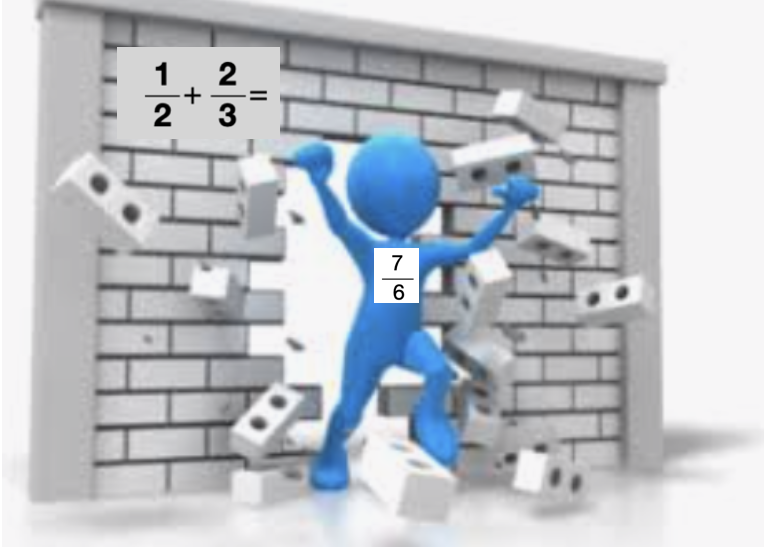 |
The
problem many people have with school
arithmetic [fractions] is that they never
get to the meaning stage; it remains forever
an abstract game of formal symbols. Keith
Devlin, The Math Instinct
Mastering fractions is a strong indicator of future math success. We have to pay our dues at the fraction toll booth before we can travel the highway to Algebra 1. Tom Hanks, in the movie A League of Their Own, captures the dilemma perfectly when confronting a discouraged female baseball player who wants to quit the team, saying it got too hard. “It’s supposed to be hard. If it wasn’t hard, everyone would do it. It’s the hard that makes it great!” You’ve got to be great to master fractions in elementary school, because most likely the barriers will be nearly impossible to overcome. |
 “Instead of making kids learn math, let’s make math kids will learn.” -Seymour Papert |
According
to Hung-Hsi
Wu, the reason why this subject is the bane
of elementary school students has been extensively
investigated but to our knowledge no dramatic
progress has yet
surfaced as to the efficacy of students learning
fractions. One of the problems is that in contrast to units of whole number learning – topics in rational numbers are usually covered quickly and superficially whereas focus on operations, fractions, decimals and percent get a lot more time. While procedural competence is certainly important, it must be anchored by conceptual understanding. For a great many students, it is not. (How Students Learn, p. 319) So what I hope to provide is an antidote for your students' fraction malaise pandemic. I call it an |